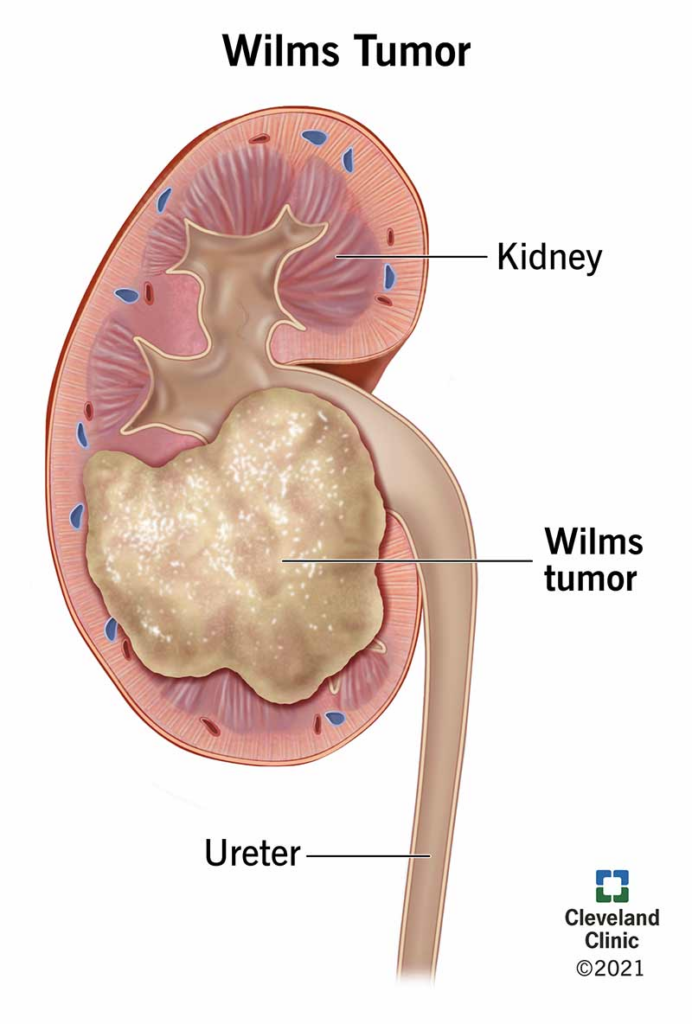
Overview
Wilms Tumor, or nephroblastoma, is a type of cancer that is almost always found in children. For the most part, this disease only affects one kidney, but occasionally affects both. This is the most common type of kidney cancer, and makes up 6% of all childhood cancer cases. It is also not associated with any adult kidney cancer. Wilms Tumor is diagnosed fairly early on in childhood, the average being around 2 or 3. Additionally, it seems to appear more in Black children than children of other races.
Causes, Cures, and More
Some signs of Wilms Tumor include abdominal swelling or pain, fever, constipation, high blood pressure, blood in pee, and more. Imaging technologies like ultrasounds, X-rays, and MRIs, as well as biopsies can be used to diagnose Wilms Tumor.
Wilms Tumor, as well as other cancers, is caused by the uncontrolled growth of cells, which creates tumors. A Wilms Tumor grows when kidney cells don’t mature as they should, causing them to go out of control. However, no one is completely sure what causes this. There are some cases where Wilms Tumor is linked with other birth defects and gene changes, but this isn’t true across the board. Unfortunately, because the exact causes are unknown, there isn’t really any way to prevent Wilms Tumor.
Even though there is no way to prevent Wilms Tumor, most kids diagnosed with this are cured. There are a number of ways to treat this condition, including surgery, radiation therapy, and chemotherapy. In early stages of Wilms Tumor, surgery is usually sufficient treatment, though sometimes radiation therapy, like proton therapy, and chemo are used to get rid of any other cancer cells. Patients for Wilms Tumor may be treated by radiologists, surgeons, radiation oncologists, and more.
Most diagnosed with Wilms Tumor survive it, with 90% of patients living 5 years or more after they’ve been treated. However, this can vary from case to case. Additionally, the severity of the tumor and how it was treated may cause issues later in life. In later stages of Wilms Tumor, where cancerous cells have spread to other organs, radiation and chemo treatments may cause issues. These problems can occur in the form of further kidney issues, heart problems, or lung issues. Because of these possible effects, surgery in early stages is usually the best treatment.
Additional Info
Specialists that may work with treating Wilms Tumor include radiologists, surgeons, radiation oncologists, as I mentioned earlier, plus pediatric radiologists. These specialists find there is still much research to be done on Wilms Tumor and what causes it. For example, there is ongoing research about how gene changes may affect the development of Wilms Tumor, as well as what it might mean for treatment. In terms of treatment, there is also research into how to use less of it when possible and how to approach cases that are harder to treat.
Resources
https://medlineplus.gov/wilmstumor.html
https://www.cancer.org/cancer/types/wilms-tumor/about/what-is-wilms-tumor.html
https://my.clevelandclinic.org/health/diseases/23259-wilms-tumor